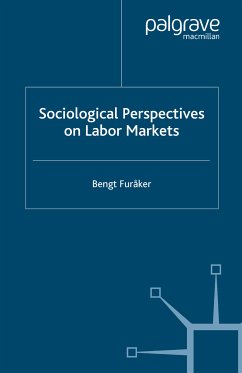
The Palgrave Handbook of the Sociology of Work in Europe (eBook, PDF)
Versandkostenfrei!
Sofort per Download lieferbar
112,95 €
inkl. MwSt.
Weitere Ausgaben:

PAYBACK Punkte
56 °P sammeln!
¿- Charts the development of the sociology of work in 11 European countries
- Brings to the fore the drivers and reasons for the development of the study of the sociology of work that can be neglected in more descriptive analyses
-Examines the practice of sociology and the theory both longitudinally and comparatively using the study of individual countries as a framework
Dieser Download kann aus rechtlichen Gründen nur mit Rechnungsadresse in A, B, BG, CY, CZ, D, DK, EW, E, FIN, F, GR, HR, H, IRL, I, LT, L, LR, M, NL, PL, P, R, S, SLO, SK ausgeliefert werden.












